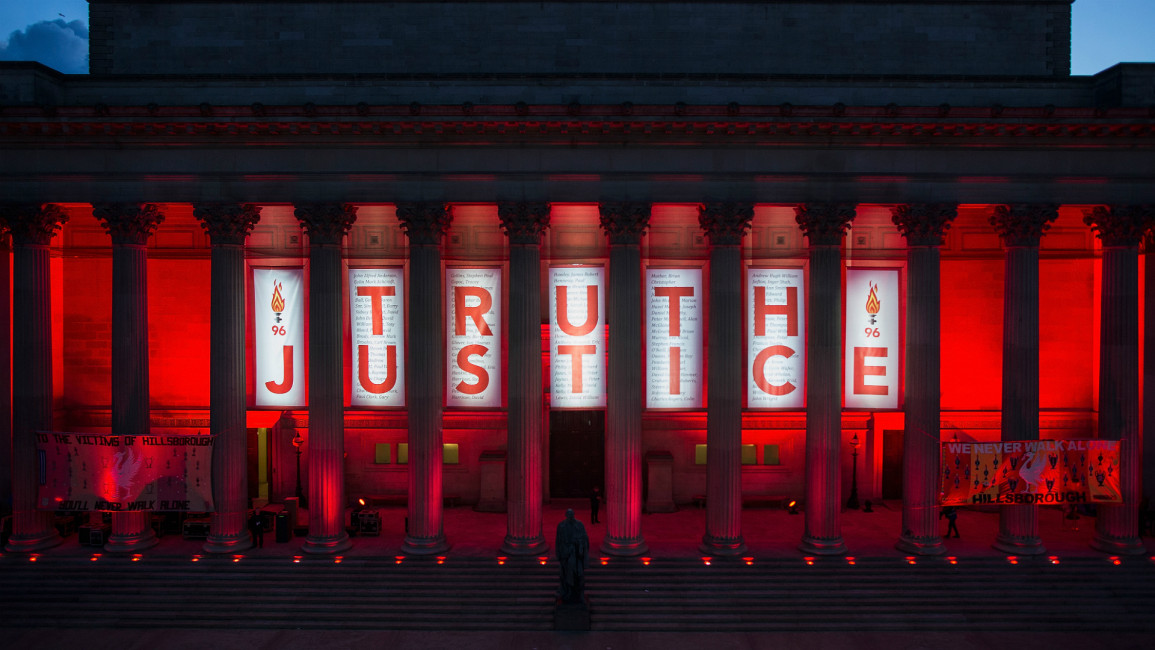
Hillsborough victims used for cheap political points in Egypt
Egyptian authorities seem to be exploiting a UK inquest into the deaths of 96 Liverpool football fans during the 1989 Hillsborough stadium disaster.
During the match, Liverpool fans were crammed into a pen leading to the death of dozens, and relatives of those who died fought the official narrative that "drunk" ticketless fans were somehow behind the crush.
After 26 years, families of the deceased finally won their battle with UK authorities this week when a court ruled they were "unlawfully killed". They had long insisted that it was police and emergency services' negligence which led to their deaths.
Earlier this week, Egyptian Foreign Ministry Spokesman, Ahmed Abu Zeid, responded to the fight for justice with this tweet:
Ahmed Abu Zeid's comment was not taken well by the vast majority of social media users.
Many reminded the official of the 2013 Port Said stadium massacre when 74 football fans were killed as police stood by. They also highlighted Egypt's corrupt and politicised criminal justice system.
Translation: "Man, take a look at yourself and don't ever mention justice."
Translation: "Do you understand what you're saying and think it's alright!? You probably didn't even know about the [disaster] the day before the verdict was made. Show some respect and shut up."
 |
Many Egyptian football fans feel that justice has still not been served for the victims of the Port Said massacre – the biggest disaster in the country's footballing history |  |
The irony of Abu Zeid's tweet is that many Egyptian football fans feel that justice has still not been served for the victims of the Port Said massacre - the biggest disaster in the country's footballing history.
In the final minutes of a match between Port Said and visiting Cairo-based club al-Ahly, home supporters attacked the away fans killing 74 of them.
In 2015, 11 defendants were sentenced to death and another 40 given sentences of up to 15 years for their roles in the attack.
But only two police officers were convicted although fans accused them of standing idly-by during the massacre. Some said the police even orchestrated the killings, as Ahly "Ultras" are well-known for their opposition to military rule.
This is not the first time that Egyptian authorities have weighed into a UK domestic issues or drawn parallels with their own controversial behaviour.
This week, Egyptian officials slammed the UK for its "poor handling" of the death inquest of a young Egyptian.
Recently, Egyptian MPs demanded that British authorities use "intelligence" to solve the murder of Egyptian Adel Habib, a man who died on Tuesday after his garage in West London was set on fire in a suspected arson attack.
The MPs accused them of "double standards" emphasising the UK's continuous criticism of Egypt's poor investigation into the murder of Giulio Regeni, an Italian student.
Regeni's half-naked and mutilated body was found in a ditch outside Cairo in February and police have been accused of his murder. Cairo has vehemently denied the charges.
Rome recalled its ambassador from Cairo and criticised Egypt's lack of progress into the investigation, with the US and UK governments echoing similar concerns.
Egypt has also compared Egyptian police tactics during the Rabaa Square massacre with those employed by British officers during London's 2011 riots.
Cairo and state-aligned media said the UK's handling of its 2011 riots was in line with what Egyptian security did in Rabaa.
What they failed to mention was that Egyptian security forces used live ammunition and military equipment to disperse a large pro-democracy crowd, which led to the killing of over 800 civilians in one day.
With the Egyptian government working hard to try and promote itself as a reliable ally and attractive destination for UK tourists and investors, many will wonder how wise it was for the foreign ministry spokesman to make such an undiplomatic comment.




